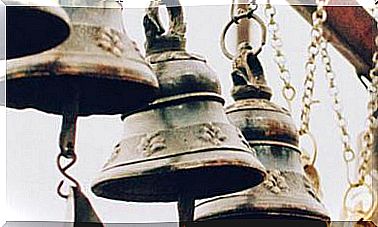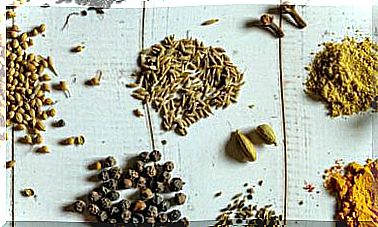Vitamin B12: What All Vegans Should Know
If you do not allow animal products on your plate, you should take a B12 supplement, essential for the formation of red blood cells and the system highly strung

The vitamin B12 is a nutrient in eternal discord in the vegetarian diet. We can read all kinds of claims about it, but they are not always based on the available evidence.
However, the reality is that the scientific literature on B12 is extensive and the conclusions leave no room for doubt : today there are few doubts about the unnecessary risk of not incorporating it into the diet sufficiently, so all Vegan or vegetarian should be attentive to how to meet the B12 requirements safely. If you don’t want to be low, you should take a B12 supplement.
What is vitamin B12?
Vitamin B12 is essential for the formation of red blood cells and also for the functioning of the central nervous system, since it maintains the myelin sheath of neurons and participates in the synthesis of neurotransmitters. It also acts as a coenzyme in a variety of important metabolic reactions.
In what foods is vitamin B12 found?
We generally find it in foods of animal origin. Active B12 has also been found in algae such as fresh nori and some tempeh, but availability for use as a reliable source remains to be confirmed. There are also enriched products such as vegetable drinks, breakfast cereals …
There may also be vitamin B12 in the earth. But when the vegetables are washed, it is eliminated and with it the little B12 that there may be. Eating unwashed vegetables is not an option. So it doesn’t seem like the best idea when it comes to stocking up on this essential nutrient.
It is produced by certain bacteria in the colon, away from the small intestine where it is absorbed. There are reserves in the liver, but it is not possible to know how long they will last (months or up to 3 years). That is why it is advisable to supplement the vegetarian diet.
Vitamin B12 deficiency
Vegetables do not contain bioavailable B12, but rather corrinoids or B12 analogues. Therefore, a vegan person is at risk of developing deficits. In addition, the analogues hinder the absorption of the true B12 and can falsify an analysis, since the serum determination does not distinguish between analogs and active B12.
The latest research on the prevalence of B12 deficiency in the vegetarian population shows a very frequent deficit also in ovo-lacto-vegetarians. Therefore we should include this group in the recommendations.
“It can take a relatively long time for B12 stores to be depleted, but symptoms of B12 deficiency can occur quickly” Pawlak et al.
The reasons that the ovo-lacto-vegetarian population also frequently present deficits are, on the one hand, a consumption of dairy and eggs that does not reach the necessary minimum and, on the other, a lack of acidity in the stomach or hypochlorhydria. This hinders the absorption of B12 because its binding with intrinsic factor is hindered, an essential step. When the consumption of dairy and eggs is less than 3 servings a day (such as an egg, half a glass of milk, a yogurt and a half, 100 g of fresh cheese or 25 g of semi-cured cheese), it is essential to supplement vitamin B12 in the form and appropriate doses.
Symptoms of a low B12
It usually manifests with megaloblastic anemia, an alteration of the precursor cells of the bone marrow. Possible symptoms include diarrhea, dizziness, loss of appetite, pale skin, trouble concentrating, confusion, or numbness in the hands and feet.
In addition to vegetarians, people over 50 years of age and those who take stomach protectors such as Omeprazole should pay special attention. Also those who suffer from alterations in intestinal absorption or have undergone digestive surgeries.
B12 supplements, the sensible choice
The supplements are cheap: they can be obtained online for 7 euros for two years. They are of bacterial synthesis – not of animal origin – and very safe. It is appropriate to choose cyanocobalamin, the most studied form in terms of dosage and toxicity.
For maintenance doses (non-therapeutic), there are three options: take two servings of fortified food daily (noting that they add up to a total of 4 mcg); take a daily supplement of 25-100 mcg; and take a weekly supplement of 2,000 mcg, or two of 1,000 mcg.
Why are there vegans who don’t drink and show no symptoms?
Regarding specific cases that are not under control, and it is not known exactly what they eat, no conclusions can be drawn. The studies do not show vegans who do not need B12. It is not worth taking the risk of not taking a cheap and safe supplement.









